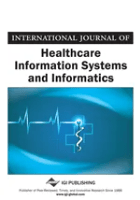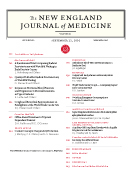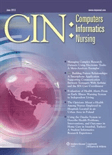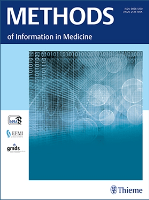
TECHNOLOGY AND HEALTH CARE
Scope & Guideline
Bridging Technology and Care for Better Outcomes
Introduction
Aims and Scopes
- Healthcare Technology Innovations:
Research on new technologies and methodologies that improve healthcare delivery, including telemedicine, wearable devices, and mobile health applications. - Clinical Applications of AI and Machine Learning:
Studies exploring the use of artificial intelligence and machine learning techniques in diagnosing diseases, predicting patient outcomes, and optimizing treatment plans. - Biomedical Engineering Solutions:
Investigations into engineering solutions that address clinical challenges, such as the development of prosthetics, rehabilitation devices, and surgical instruments. - Patient-Centered Care and Health Outcomes:
Research focusing on the impact of technology on patient experiences, outcomes, and the delivery of personalized healthcare. - Public Health and Epidemiology:
Studies that utilize technology to monitor public health trends, manage disease outbreaks, and assess health interventions. - Regulatory and Ethical Considerations in Health Tech:
Analysis of the ethical implications and regulatory challenges posed by emerging healthcare technologies.
Trending and Emerging
- Integration of IoT in Healthcare:
The rise of Internet of Things (IoT) applications in healthcare is a significant trend, focusing on how connected devices can enhance patient monitoring, data collection, and health management. - Telehealth and Remote Patient Monitoring:
The increasing reliance on telehealth solutions and remote monitoring technologies, particularly in light of the COVID-19 pandemic, is a prominent area of research. - AI-Driven Diagnostics and Treatment:
There is a surge in research utilizing artificial intelligence for diagnostic purposes, treatment recommendations, and personalized medicine, showcasing its transformative potential in healthcare. - Data Analytics for Health Outcomes:
Emerging studies are focusing on data analytics and big data approaches to improve health outcomes, manage population health, and facilitate predictive modeling. - Rehabilitation Technologies:
Innovations in rehabilitation technologies, including robotic and exoskeletal devices, are gaining traction, reflecting a trend towards enhancing recovery processes for patients.
Declining or Waning
- Traditional Medical Practices:
There has been a notable decrease in studies focused solely on traditional medical practices without the integration of innovative technologies or methodologies. - Basic Health Education:
Research centered on basic health education, without the incorporation of technological advancements or digital tools, seems to be less prevalent in recent publications. - Single-Discipline Approaches:
Papers that focus exclusively on a single discipline within healthcare, without interdisciplinary collaboration or technological integration, are becoming less common. - Conventional Diagnostic Techniques:
The frequency of studies on conventional diagnostic techniques, such as basic imaging methods or standard laboratory tests, is declining as more advanced, technology-driven diagnostic methods gain prominence. - General Health Policy Discussions:
Discussions surrounding general health policy, without the context of technological innovation or specific case studies, are less frequently published.
Similar Journals

JMIR Medical Informatics
Advancing the Future of Healthcare Through InformaticsJMIR Medical Informatics is a leading open access journal dedicated to the field of medical informatics, published by JMIR Publications, Inc. since 2013 in Canada. With an impressive impact factor and a distinguished Q2 ranking in both Health Informatics and Health Information Management categories, this journal plays a pivotal role in disseminating cutting-edge research and innovative practices. Covering a wide scope that includes clinical informatics, health information systems, and data analytics, JMIR Medical Informatics provides valuable insights for researchers, practitioners, and policymakers alike. The journal is accessible to a global audience, ensuring that pioneering studies and methodologies reach those who can apply them to enhance health outcomes. With its commitment to advancing the body of knowledge in medical informatics, this journal stands as a vital resource for anyone involved in or studying the intersection of healthcare and technology.

International Journal of Healthcare Information Systems and Informatics
Advancing knowledge in healthcare information systems.International Journal of Healthcare Information Systems and Informatics is a prestigious academic journal published by IGI Global, focusing on the vital intersection of healthcare and information technology. With an ISSN of 1555-3396 and E-ISSN of 1555-340X, this journal serves as a pivotal platform for researchers, professionals, and students to explore innovative solutions and advancements in healthcare informatics. As of 2023, it holds a commendable Q3 ranking in categories such as Information Systems and Medicine, highlighting its significant contribution to the academic community. Covering a wide range of topics from healthcare data management to the implementation of information systems in clinical settings, the journal aims to foster critical discussions and disseminate impactful research. With a publication history spanning from 2006 to 2024, it continues to play a crucial role in guiding the future of healthcare information systems. Readers can access this journal through traditional subscription methods, ensuring that leading-edge research reaches those most invested in the evolution of healthcare informatics.

NEW ENGLAND JOURNAL OF MEDICINE
Empowering Healthcare Through Groundbreaking InsightsThe New England Journal of Medicine (NEJM), published by the Massachusetts Medical Society, stands as a beacon of excellence in the field of medicine. With an impressive impact factor and a prestigious rank of #2 out of 636 in General Medicine, NEJM is recognized in the Q1 category for its significant contributions to medical research and clinical practice since its inception in 1945. The journal is renowned for publishing groundbreaking studies, reviews, and commentaries that influence clinical guidelines and healthcare policies worldwide. While the journal is not open access, it provides pivotal resources that are essential for researchers, healthcare professionals, and students looking to stay abreast of the latest developments in medicine. With a commitment to advancing medical knowledge, NEJM plays a crucial role in bridging the gap between laboratory research and clinical application.

CIN-COMPUTERS INFORMATICS NURSING
Elevating Nursing Practice with Evidence-Based InformaticsCIN-COMPUTERS INFORMATICS NURSING is a distinguished journal that publishes cutting-edge research at the intersection of nursing and information technology. Published by Lippincott Williams & Wilkins, the journal has been a pivotal platform since 2002, catering to the needs of health informatics professionals and nursing researchers. With an impressive impact factor and ranked within Q2 in Nursing (miscellaneous) and other relevant categories, it serves as a key resource for advancing knowledge and best practices in the field. The journal's inclusion in important databases ensures broad visibility and access to the latest findings that influence healthcare delivery. CIN-COMPUTERS INFORMATICS NURSING welcomes a diverse range of articles, including empirical studies, reviews, and innovative methodology approaches, making it an invaluable asset for clinicians, educators, and scholars dedicated to enhancing nursing informatics and improving patient outcomes.

Malaysian Journal of Medical Sciences
Empowering healthcare through innovative research.Malaysian Journal of Medical Sciences, published by PENERBIT UNIVERSITI SAINS MALAYSIA, is a distinguished open-access journal dedicated to advancing knowledge in the field of medicine. With an E-ISSN of 2180-4303 and a comprehensive publication history dating back to 2003, the journal has carved out a notable presence in the academic community, achieving a Scopus rank of #198 in the General Medicine category and placing in the 68th percentile for its contributions. The journal, classified in the Q3 quartile for the year 2023, encompasses a broad spectrum of medical disciplines, providing a platform for researchers and professionals to share valuable insights and discoveries that can influence healthcare practices in Malaysia and beyond. As an open-access publication since 2017, it ensures that cutting-edge research is accessible to a wider audience, fostering collaboration and innovation in the medical sciences. Whether you are a seasoned researcher, a healthcare professional, or a dedicated student, the Malaysian Journal of Medical Sciences offers a vital resource to enhance your understanding of contemporary medical advancements.

FAMILY MEDICINE
Shaping the Future of Family Medicine TogetherFAMILY MEDICINE is a prestigious peer-reviewed journal published by the SOC TEACHERS FAMILY MEDICINE, dedicated to advancing the field of family practice. With an ISSN of 0742-3225 and an E-ISSN of 1938-3800, this journal serves as a vital resource for researchers, healthcare professionals, and students involved in family medicine. Founded in 1985, it has consistently contributed to the growth of knowledge in this critical area, showcasing a wide range of original research, reviews, and practical applications. Recognized for its impact, the journal holds a Q2 quartile ranking in Family Practice, placing it in the top tier within its category, and ranks 22nd out of 56 in the Scopus database, reflecting its influence and relevance. While the journal operates under a subscription model, it remains committed to providing high-quality discourse and insights that shape the practice of family medicine. With a focus on current issues and evidence-based practices, FAMILY MEDICINE continues to be an essential publication for those dedicated to improving patient outcomes and advancing the field.

METHODS OF INFORMATION IN MEDICINE
Catalyzing Change in Healthcare Through Information Excellence.METHODS OF INFORMATION IN MEDICINE, published by Georg Thieme Verlag KG, stands at the forefront of medical knowledge dissemination, pushing the boundaries of Advanced and Specialized Nursing, Health Informatics, and Health Information Management. Established in 1962, this prestigious journal has continuously evolved to address the dynamic landscape of healthcare and information technology, aiming to bridge the gap between clinical practice and innovative information technologies. With a robust impact factor reflected in its 2023 Scopus rankings, where it holds a commendable position in Q1 for Advanced Nursing, it serves as an invaluable resource for researchers, practitioners, and students alike. While it maintains a subscription-based access model, the journal fosters the exchange of pioneering methodologies and transformative ideas that are crucial for advancing healthcare delivery and improving patient outcomes. Explore the latest research, expert insights, and cutting-edge developments that solidify the journal’s role as a leader in the interdisciplinary approach to medicine and information systems.

INFORMATION RESEARCH-AN INTERNATIONAL ELECTRONIC JOURNAL
Transforming Information Research for Tomorrow's Scholars.INFORMATION RESEARCH - AN INTERNATIONAL ELECTRONIC JOURNAL is a distinguished open-access journal published by the University of Sheffield's Department of Information Studies, situated in England. Since its inception in 1995, the journal has been at the forefront of disseminating research findings in the field of Library and Information Sciences, earning a commendable Q2 ranking in the category for 2023. With an ISSN of 1368-1613 and an E-ISSN of 1368-1613, it serves as a vital resource for scholars, practitioners, and students alike, providing a platform for innovative insights and engaging discussions. The journal accepts submissions from diverse perspectives related to the information research domain and contributes to the ongoing dialogue among academic professionals worldwide. With a Scopus ranking placing it at 150 out of 280 in its field, this publication underscores its importance in shaping the future of information studies while enabling wide accessibility to cutting-edge research.

Healthcare Technology Letters
Empowering knowledge for a healthier tomorrow.Healthcare Technology Letters is a leading open-access journal published by WILEY that has been at the forefront of disseminating cutting-edge research in the field of health informatics and health information management since its inception in 2014. With an E-ISSN of 2053-3713, this esteemed journal is recognized for its commitment to advancing knowledge and practice in healthcare technology, making it a vital resource for researchers, professionals, and students alike. The journal's scope encompasses a wide range of topics, including digital health solutions, data management, and innovative technologies that enhance patient care. It holds a respectable position in the academic community, featuring a Q3 ranking in both health informatics and health information management as of 2023, and consistently contributing to high-impact research evidenced by its Scopus rankings. By providing open access to its content since 2017, Healthcare Technology Letters ensures that valuable insights and breakthroughs can reach a broader audience, furthering the impact of its published work on the global health landscape.

Health and Technology
Transforming Health with Cutting-Edge TechnologyHealth and Technology, published by SPRINGER HEIDELBERG, is a prominent journal in the interdisciplinary realms of health sciences and technology, with a particular focus on the innovative applications of technology in healthcare settings. With a robust ISSN of 2190-7188 and E-ISSN 2190-7196, the journal has been making significant contributions to the field since its inception in 2011. As of 2023, it is recognized within the Q2 category in Applied Microbiology and Biotechnology, Biomedical Engineering, and Biotechnology, alongside a Q3 ranking in Bioengineering, reflecting its ongoing relevance and impact in these dynamic fields. Its commendable Scopus rankings underscore its commitment to high-quality research, being placed favorably among peers: #86 in Biomedical Engineering and #38 in Applied Microbiology and Biotechnology. Although not currently an Open Access journal, Health and Technology offers a wealth of scholarly content that is crucial for researchers, professionals, and students seeking to explore the intersection of health and technological advancements. With a converged publication timeline extending to 2024, the journal remains a vital resource for those striving to push the boundaries of innovation in health technology.